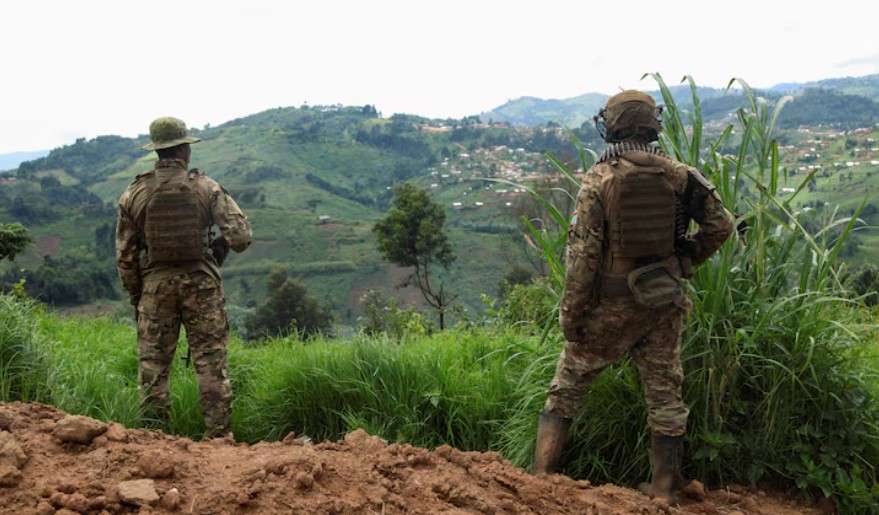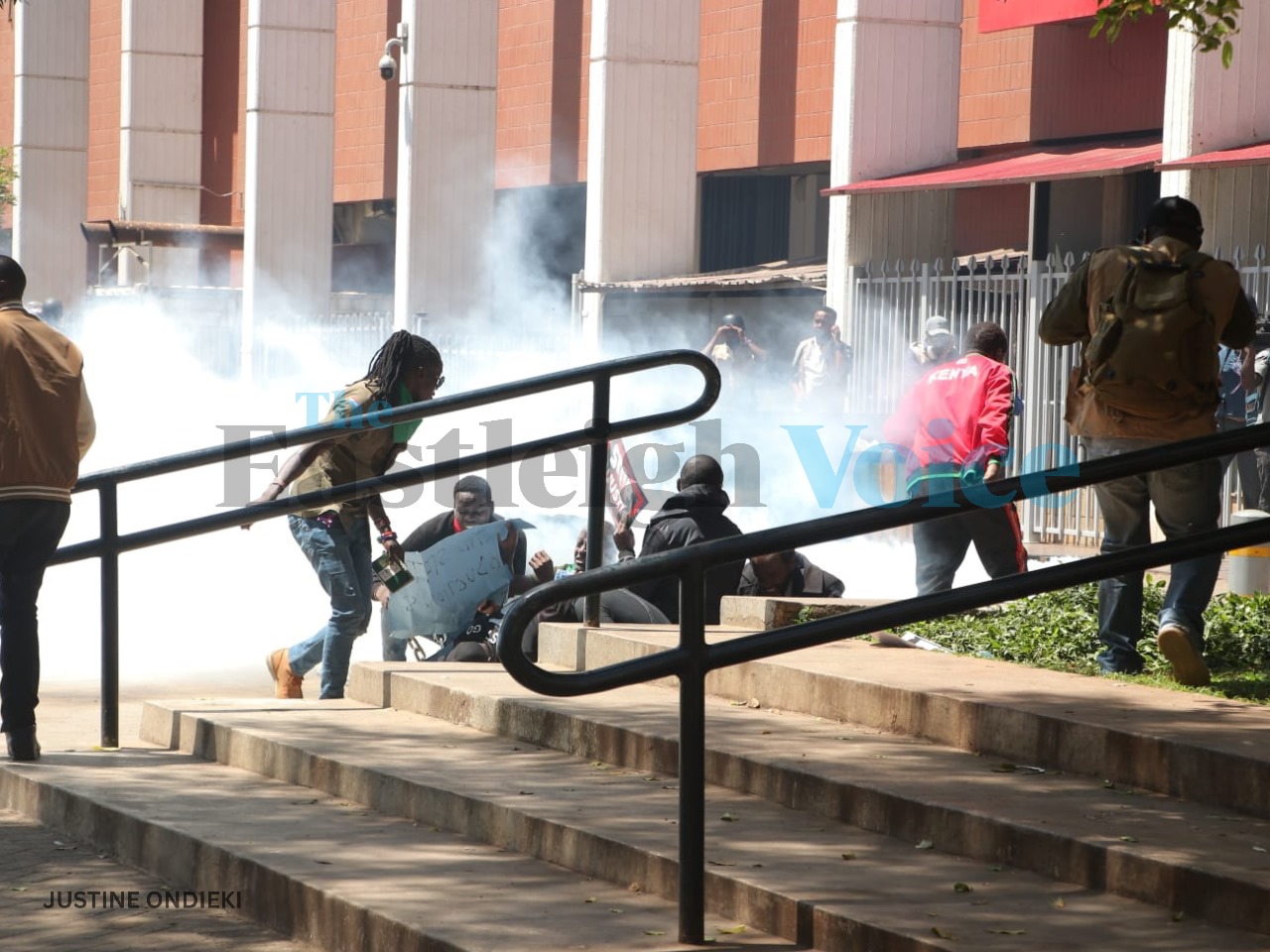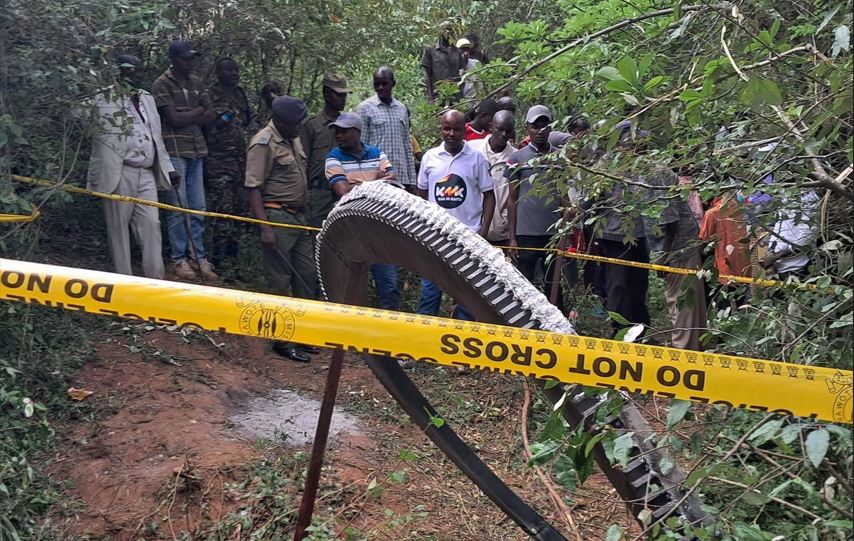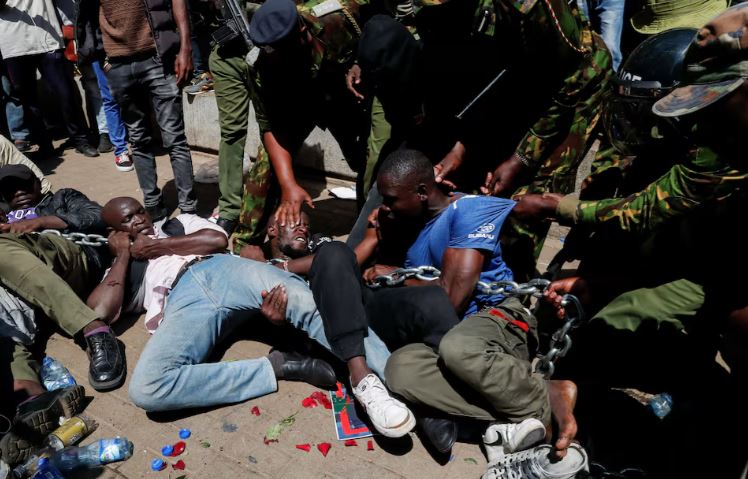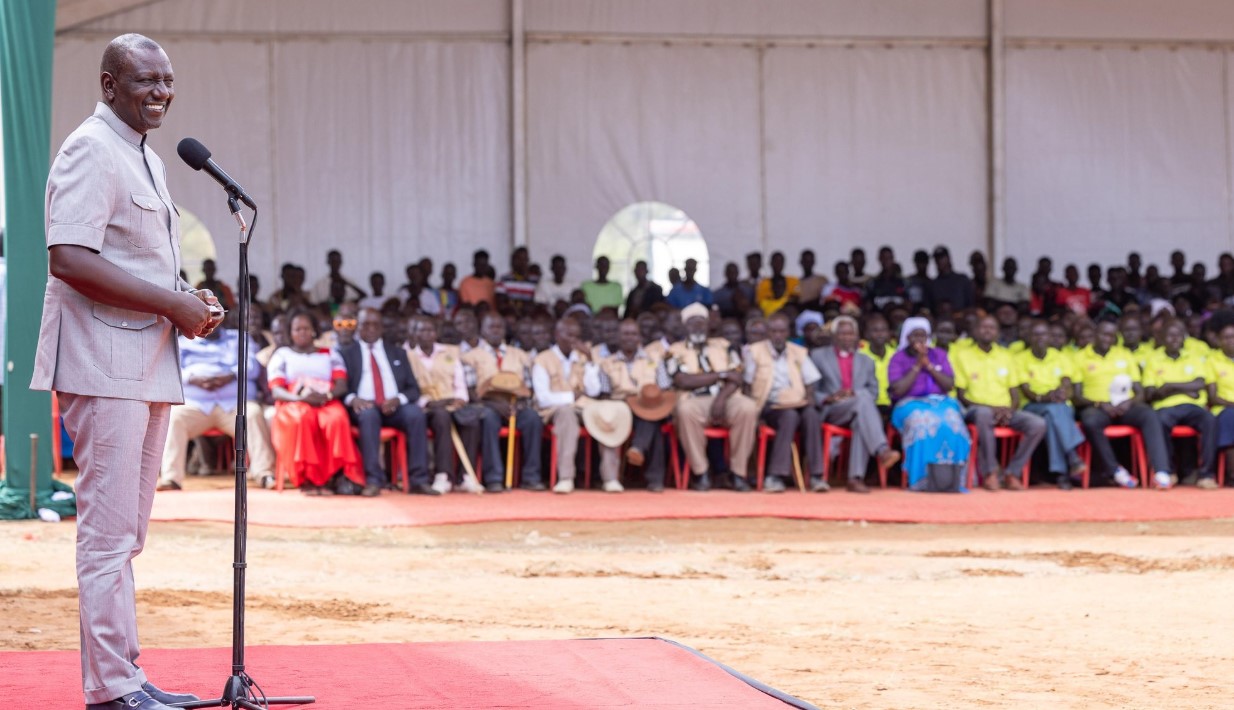Security operation in North Rift yet to achieve significant success- Report
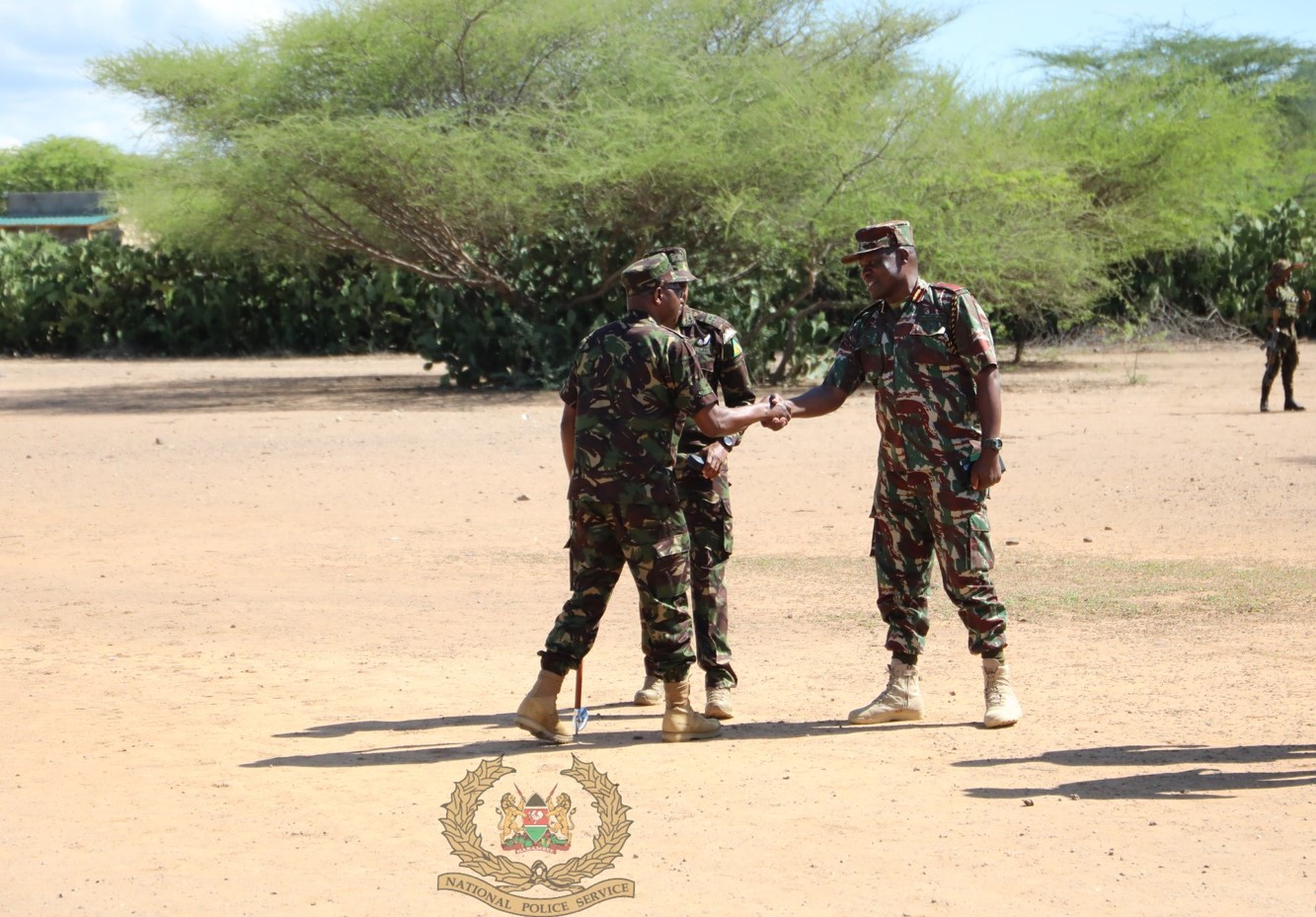
The inquiry conducted over nine months from August last year to April this year, sought amongst others to evaluate the effectiveness of interventions implemented by the government security agencies since January last year to restore peace and normalcy in the affected areas, challenges faced and make recommendations to security challenges in the region.
A new report on the inquiry into the state of security in the six counties of North Rift that have been under a security operation has revealed that Operation Maliza Uhalifu North Rift has not achieved significant success as certain areas within the targeted regions have continued to experience recurrent and sporadic attacks leading to loss of lives and destruction of property.
The report, tabled on Tuesday by Gabriel Tongoyo, Chairperson of the National Assembly's Administration and Internal Security Committee, covers Baringo, Elgeyo Marakwet, Turkana, West Pokot, Samburu, and Laikipia counties, which were declared disturbed and dangerous zones by the Ministry of Interior in February last year due to a resurgence of banditry, cattle rustling, and inter-communal conflicts.
More To Read
- Police insist Ibrahim Mwiti was not abducted before he met his death
- Police refute claims linking duty roster to arrest of protesters
- Kenya’s policing reforms: Progress, challenges and negative public perception
- NPS to unveil digital police stations to enable Kenyans file complaints online - IG Kanja
After declaring a state of emergency in the counties, the government initiated an operation to restore law and order, protect communities from organised banditry, and prevent territorial expansion in the six counties.
The operation led by the National Police Service looped in officers from the Kenya Defence Forces (KDF) who are still actively deployed in the region to assist the police in the kinetic operations to flush out the bandits.
The inquiry conducted over nine months from August last year to April this year, sought amongst others to evaluate the effectiveness of interventions implemented by the government security agencies since January last year to restore peace and normalcy in the affected areas, challenges faced and make recommendations to security challenges in the region.
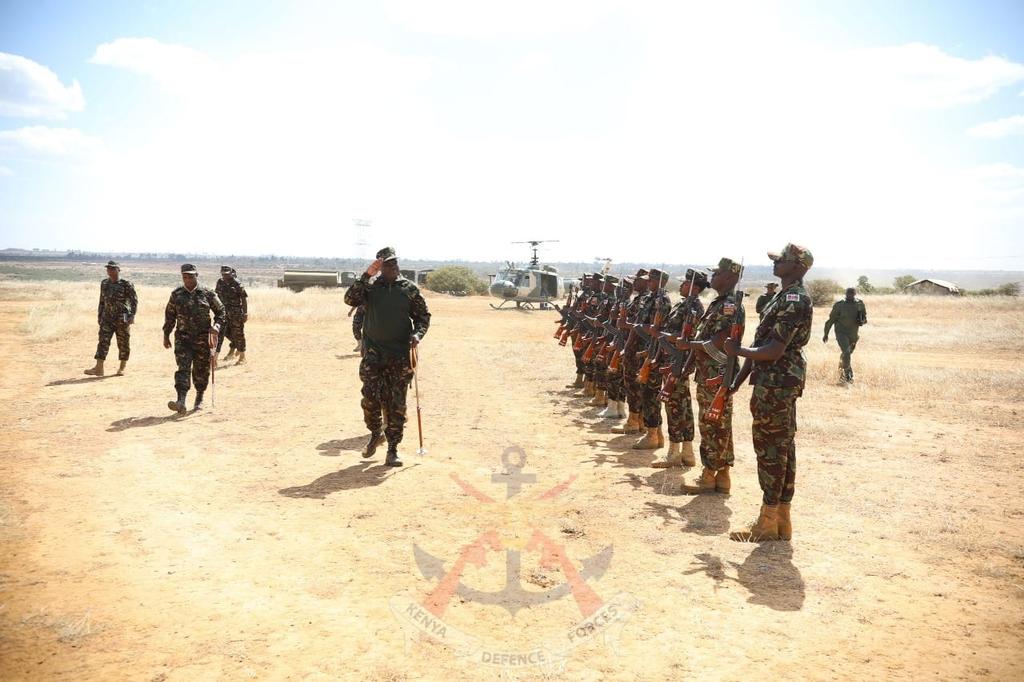 Commander Kenya Army, Lieutenant General David Tarus, when he paid a visit to troops under ‘Operation Maliza Uhalifu’, North Rift on March 20, 2024. Photo: Kenya Defence Forces
Commander Kenya Army, Lieutenant General David Tarus, when he paid a visit to troops under ‘Operation Maliza Uhalifu’, North Rift on March 20, 2024. Photo: Kenya Defence Forces
For several months, the operation was cited as having managed to quell the security situation in the affected counties allowing a resumption of normalcy in schools that had closed over insecurity, resumption of market days and movement of people across the region, success that the committee notes has consistently faced a myriad of challenges.
"The Government's success faces multiple obstacles, including limited resources, proliferation of arms, commercialization of banditry, vast and rugged terrain and proliferation of arms. Additionally, the underlying socio-economic factors including poverty, unemployment and limited access to essential services, further contribute to the state of lawlessness in the region," the report states.
It adds that a lack of administrative structures has also contributed to the widespread lawlessness in the affected areas.
The committee recommended that to effectively secure the six counties, there's a need to adopt a comprehensive, multi-pronged approach and solutions that address the root causes of the conflict which include strengthening the capacity of security forces, enhancing community-level interventions and fostering sustainable peace initiatives and development.
"The National Government in collaboration with the County Governments should delineate the county boundaries through collaborative and comprehensive approach for effective border management and revitalise traditional governance structures within pastoral communities," notes part of the recommendations.
Another recommendation is that the National Police Service should adopt and deploy modern security surveillance systems by integrating advanced technologies such as drones, Mine Resistant Ambush Protected Vehicles, Armoured Personnel Carriers and air surveillance.
"This will enhance their ability to detect and combat crime while ensuring safer working conditions for its officers," the report says.
It further recommends the Ministry of Education prioritise the construction and reopening of all educational institutions closed due to insecurity and ensure compulsory primary and secondary education in the six affected counties.
The key issues addressed in the recommendations articulated by the parliamentary committee are aligned with those contained in the KDF's Technical report on the National Shared Security Strategy for enduring peace and security in the North Rift region that was presented to the President in April last year.
The report informed the deployment of the military to the operation, KDF has been involved in the opening up of routes, digging boreholes, rehabilitation and construction of some schools in the area, part of the projects that the late Chief of Defence Forces General Francis Ogolla had gone to inspect before his untimely death in a chopper crash earlier this year.
While comprehensive in its findings and recommendations, the report by the parliamentary committee fails to mention the inadequate local political goodwill that is needed to make the operation even more successful.

